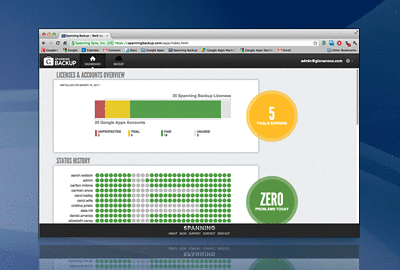The new features, which could be announced at Apple's world-wide developer conference beginning June 11, will allow iCloud users to share sets of photos with other iCloud users and to comment on them, these people said.
Currently, users can store only one set of photos in iCloud through a feature called Photo Stream, which is designed to sync those photos to other Apple devices, not share them.
The Cupertino, CalifORnia company is also working on a new feature that will allow iCloud users to sync their personal videos via iCloud, these people said, adding that Apple also plans to allow users to access "Notes" and "Reminders"— two of its apps for jotting down quick thoughts—through iCloud.com. Currently, those items have to be accessed via apps for those features.
These features could come in Apple's next mobile operating system, iOS 6, which Apple is planning to preview to developers in June, the people said.
The moves amount to the most significant refresh of iCloud since its launch last October. The service is highly strategic for Apple as it tries to satisfy customers who want to access their data across different Apple devices. As of April, more than 125 million Apple device owners had signed up for iCloud.
Yet Apple is rolling out new features cautiously as it worries about the costs of storing huge volumes of user data, the people familiar with the matter said. The company allows users to store music, movies and TV shows purchased through iTunes, along with apps, books and Photo Stream photos for free. After that, they get five gigabytes for free.
When it comes to iCloud as a whole, Apple also limits which iCloud features users can access from a Web browser from any device to keep them buying Apple ones.
Only a few iCloud features, like email and calendar, can be accessed through the iCloud website. The rest work by syncing content to other Apple devices, including iPads, iPhones and its Apple TV box.
Apple executives continue to discuss expanding the number of photos and albums users can store via iCloud to make the service resemble its iPhoto downloadable software, one of the people familiar with the matter said. But it is moving cautiously because of costs.
Source from : The Australian
Currently, users can store only one set of photos in iCloud through a feature called Photo Stream, which is designed to sync those photos to other Apple devices, not share them.
Apple is trying to better compete in the red-hot market for photo sharing, dominated by fast-growing online services such as Facebook and mobile apps like Instagram — which Facebook has agreed to acquire for $US1 billion.
The Cupertino, CalifORnia company is also working on a new feature that will allow iCloud users to sync their personal videos via iCloud, these people said, adding that Apple also plans to allow users to access "Notes" and "Reminders"— two of its apps for jotting down quick thoughts—through iCloud.com. Currently, those items have to be accessed via apps for those features.
These features could come in Apple's next mobile operating system, iOS 6, which Apple is planning to preview to developers in June, the people said.
An Apple spokeswoman declined to comment.
The moves amount to the most significant refresh of iCloud since its launch last October. The service is highly strategic for Apple as it tries to satisfy customers who want to access their data across different Apple devices. As of April, more than 125 million Apple device owners had signed up for iCloud.
Yet Apple is rolling out new features cautiously as it worries about the costs of storing huge volumes of user data, the people familiar with the matter said. The company allows users to store music, movies and TV shows purchased through iTunes, along with apps, books and Photo Stream photos for free. After that, they get five gigabytes for free.
ICloud's Photo Stream limits users to accessing their last 30 days of photos, or 1,000 of them, on Apple devices as well as PCs.Its features, after the new sharing and commenting ones, will still remain basic compared with some other photo-sharing services.
When it comes to iCloud as a whole, Apple also limits which iCloud features users can access from a Web browser from any device to keep them buying Apple ones.
Only a few iCloud features, like email and calendar, can be accessed through the iCloud website. The rest work by syncing content to other Apple devices, including iPads, iPhones and its Apple TV box.
Apple executives continue to discuss expanding the number of photos and albums users can store via iCloud to make the service resemble its iPhoto downloadable software, one of the people familiar with the matter said. But it is moving cautiously because of costs.
Source from : The Australian












